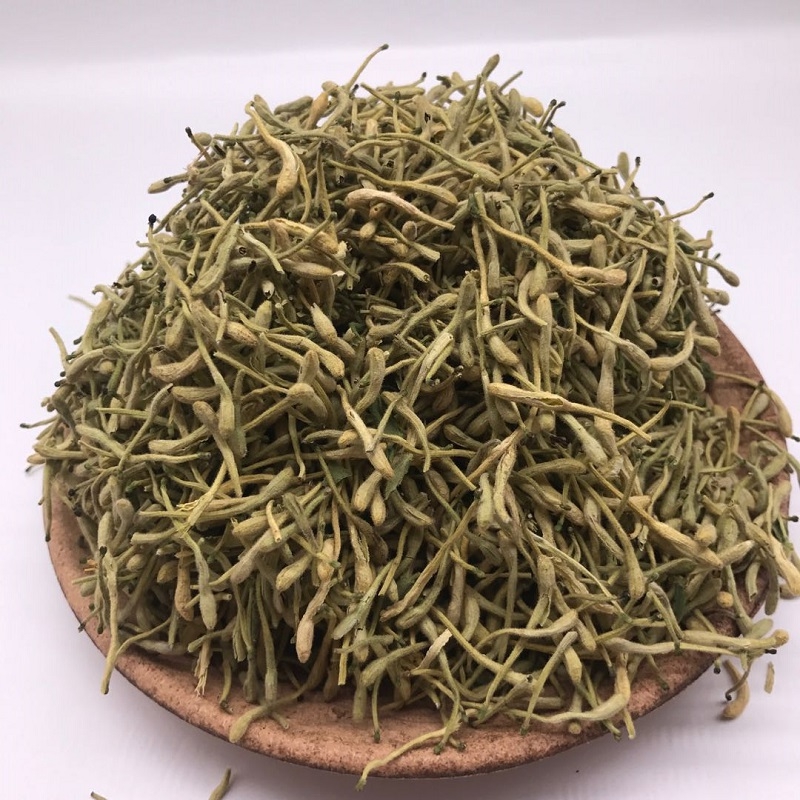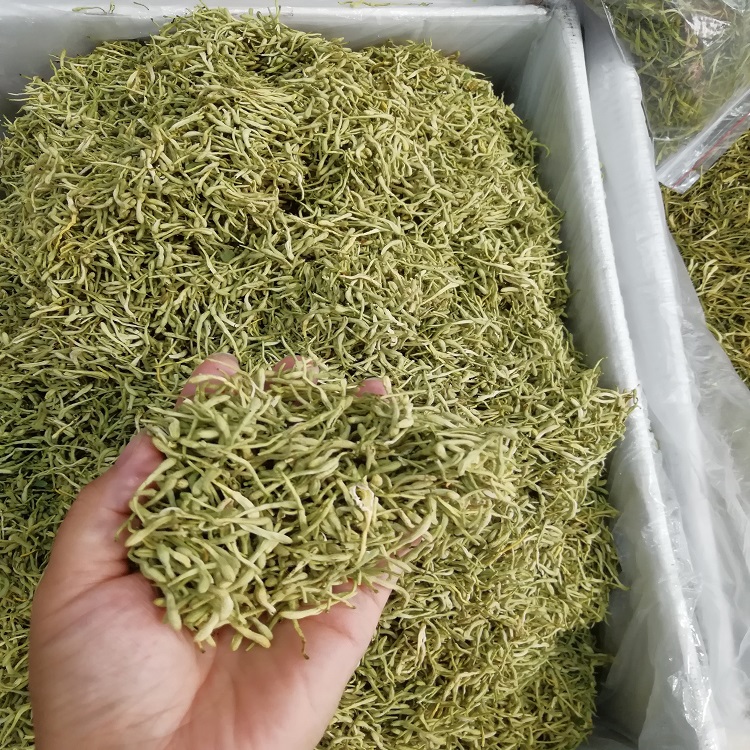
Honeysuckle, scientifically known as Lonicera japonica, is a species of flowering plant that belongs to the family Caprifoliaceae. It is native to East Asia but has been introduced and naturalized in other parts of the world, including North America and Europe.
The plant is a woody shrub or vine that can grow up to 10 meters long, with opposite, simple leaves and small, tubular-shaped flowers that range in color from white to yellow. The flowers are highly fragrant and bloom in the summer months.
Honeysuckle is widely cultivated for its ornamental value and is often used in landscaping due to its attractive flowers and ability to climb structures such as trellises, fences, and walls. It is also valued for its medicinal properties, particularly in traditional Chinese medicine where it is used to treat fever, colds, and skin infections.
In addition to its aesthetic and medicinal uses, honeysuckle plays an important ecological role as a host plant for various species of butterflies and moths. However, it is also considered an invasive species in some areas where it outcompetes native plants and disrupts local ecosystems.







